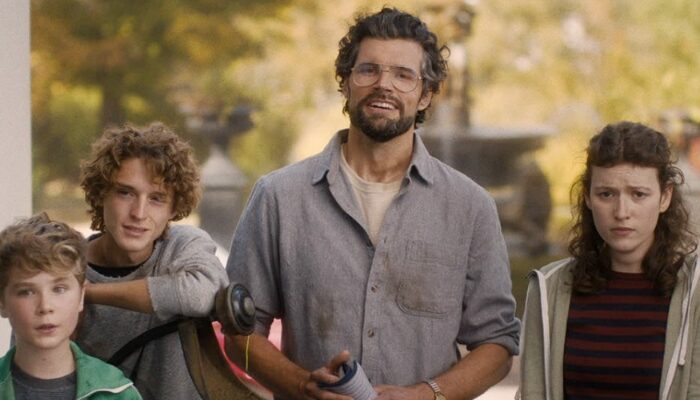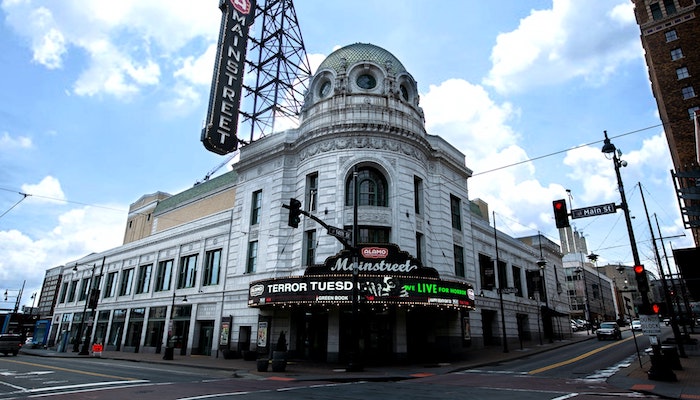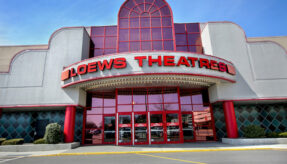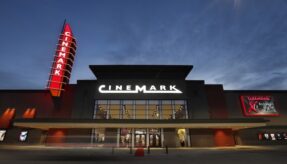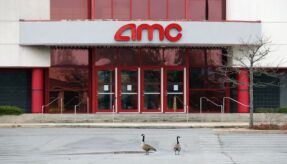Alamo Drafthouse: Allegations of Company-Wide Abuse and Mismanagement Stem from Kansas City Exposé
Table of Contents
A new investigative piece on a Kansas City branch of the Alamo Drafthouse is shedding light onto the company’s poor handling of sexual harassment, racism, and other forms of abuse
Content warning: this article contains discussions on sexual harassment, sexual assault/rape, racism, and workplace abuses.
The Austin, Texas-based theater chain Alamo Drafthouse is in the news again, but not for quirky social media campaigns or silly viral videos.
According to a new exposé in the Kansas City, Missouri-based publication The Pitch, Drafthouse has been harboring a toxic work environment rife with exploitation, abuse, and harassment – on both its local and corporate levels. Pitch writers Abby Olcese and Brock Wilbur interviewed many current and former employees of the Kansas City Drafthouse branch, known as Mainstreet, which revealed the incredible amount of mismanagement and shoddy oversight that’s festered there for the past eight years. Many of those interviewed used pseudonyns in order to prevent backlash from Drafthouse’s legal representatives and/or members of the film community.
Mainstreet in Shambles
The Pitch describes the Kansas City Mainstreet theater as a historic location in need of vast repairs. When Drafthouse took it over in 2012 very little was done to renovate the building’s outdated plumbing system, which resulted in massive sewage overflows. The theater crew was also required to use a narrow back staircase to transfer food and other concessions up to patrons in screens on the top floors, and rarely allowed workers to use the elevator regardless of accessibility concerns.
“If you couldn’t hack [the stairs], they encouraged you to find another job,” said a worker named Hannah.
“They didn’t make any accommodations,” said former Mainstreet worker Sydney Rebel, who required a knee scooter for mobility after breaking her ankle in a car accident. “No chairs to sit in, no breaks. I couldn’t take my pain meds while I was at work, and I was forced to be there for a full shift.”
On a related note, some of those shifts would be inhumanely long. Rebel claims she’s worked multiple 60-hour weeks for the theater, with no overtime pay. Another former worker, Richard Pepper, particularly recalls the opening weekend of Star Wars: The Force Awakens where Mainstreet’s workers were required to work 20 hours straight – 8:00 AM to 4:00 AM – for the entire weekend.
“There was one employee who ended up popping uppers to stay awake the whole time,” Pepper recalled. “[That weekend] I don’t think any of us slept or ate really.”
Harassment and Assault
Many of Mainstreet’s former employees relayed instances of sexual harassment and assault committed against them, or of bearing witness to such acts being perpetrated against others.
Rebel recalls a certain male employee who frequently made sexually explicit comments to his female co-workers, including herself. Pepper recalls how upper management protected that same employee even when the police showed up at the theater to inquire about said employee’s connections to an ongoing case of rape.
Another employee, Stephanie, described the antagonism she received from one of the male projectionists, by whom she had been sexually abused while working at another Kansas City movie theater years prior. Stephanie had asked upper management not to schedule her for the same shifts as this projectionist but her pleas were ignored, and she was eventually fired for creating a “passive aggressive” atmosphere.
A couple who worked at the theater, Rachel and Matt, tried to bring an internal investigation against a male coworker who had groped Rachel during one of their shifts. Matt was threatened by higher-ups with termination if he retaliated against the male employee. When an HR investigation found no grounds for said employee’s dismissal Rachel and Matt filed sexual assault and battery charges against him, but that former employee fled to South Dakota before he could be arraigned. Rachel and Matt attempted to bring charges against Drafthouse but to no avail.
Rachel described the grueling process as follows:
We went to six mediation sessions over the course of one year and they wouldn’t budge on anything. I became emotionally sick from stress until I just had to move on. That and the lawyer’s bills adding up. That’s a tactic they use. They jack you around on a compromise or settlement until you just lose hope.
But this abuse and harassment isn’t limited to the local level, either. It permeates Drafthouse’s corporate levels, too.
Prior Controversies
These are not the first allegations to be levied against the theater chain.
Back in 2017, the chain came under fire for their hiring of former Birth.Movies.Death. editor-in-chief Devin Faraci to write program content for their annual genre film festival, Fantastic Fest. Faraci had stepped down from BMD months before in the wake of sexual assault allegations. That year also saw Drafthouse sever ties with Austin-based film critic Harry Knowles of Ain’t It Cool News. Knowles, a staple in the Austin film community, was accused of sexual assault by multiple women including former Drafthouse employees.
This led to the resignation of Fantastic Fest’s director of international programming, Todd Brown, and for the Alamo Drafthouse CEO Tim League to not attend the festival that year. Public sentiment of Fantastic Fest (and, by a further extension, film culture in general) was low, so League opted to journey to the various Drafthouse branches throughout the country in order to boost morale and assure a corporate dedication to change. However, many workers were and still are skeptical about League’s genuine commitment.
“I was going to quit, but I ended up having lunch with Tim League and discussing why that incident [with Faraci] was so terrible, and asking him to explain himself,” said Hannah. “He said they were revamping the entire company, that he’d had no idea. He played dumb, in my opinion, and said he was ready to change. And I was convinced.”
Corporate Catastrophe
Former Mainstreet employee Carl recalls how he started climbing the corporate ladder, making cross-country trips to take part in training sessions for other Drafthouse chains. During one of these trips he was sexually harassed by a corporate Drafthouse employee, and threatened with termination if he talked about it. That employee was eventually fired following an HR investigation, but Carl’s own advancement opportunities “dried up” in its wake.
“I was being groomed for various leadership positions I was told I was going to be taking, and then it never came,” says Carl. “There was action taken, but that person had been protected for so long, and there was animosity against me for speaking out against them, and forcing [corporate’s] hand.”
Carl also described an act of sexual harassment that occurred in front of League at a theater opening, and how League simply laughed it off.
Many suspect that this is a result of Drafthouse’s lack of self-mediation over their “boys’ club ethos”, which has only been worsened by its rapid expansion over the last decade and a half. This might explain the company’s disciplinary leniency and legal pressure with regards to abuse and harassment, and it also insinuates other allegations of unchecked toxic film culture.
A former employee named Wes described how some locations would void ticket sales in order to make it look like certain films was underperforming. Doing so would allow those theater managers to justify altering the theater line-up to suit their particular interests over those of a wider audience. (Not to mention that it was also leading to incorrect box-office reporting and a pocketing of the voided sales for themselves.) Drafthouse corporate denied knowledge of these actions ever occurring.
Another insidious Drafthouse practice was the sanctimonious enforcement of their “No Talk” policy. Sometimes it would put employees in harm’s way, especially if a particular patron was unruly and didn’t adhere to the verbal warning. However, many Drafthouse employees thought the policy carried racist undertones, and was more or less a justification for unfairly prioritizing certain audiences over others.
According to The Pitch:
Richard Pepper says he felt the no talking policy was enforced by management in a way that specifically targeted films with majority Black audiences. “There was a concerted effort from management to tell servers to watch people constantly in the theaters,” he says. “In any other instance, if you give someone a talking warning, you can give them one warning, stick around for a couple of minutes, and if nothing happens, you could bounce. For Black movies, you give them one warning, you stand there, you watch them until they talk again, and then you kick them out.”
Pepper says this happened so often, managers would sometimes ask servers to kick out entire theaters. “There were movies with big Black audiences in the smaller theaters, and the manager would say if everyone was talking, you stop the projector and you kick the whole theater out,” he says. “I never ever felt comfortable doing that. They had us kick out entire Black families for essentially nothing.”
Drafthouse corporate was apparently alerted of such practices but refused to alter their policy.
Wes condemns the Leagues for not reigning in this toxic mindset.
“Karrie [Tim’s wife and co-owner of Drafthouse] and Tim are rich kids who saw their success as proof of intelligence rather than dumb luck,” he said.
Tim League founded the first Alamo Drafthouse in Austin, Texas in 1997. He’s gone on to found the merchandise company Mondo, as well as the film distribution labels Drafthouse Films and Neon. However, as of 2019, he’s only a chairman for the Drafthouse chain and has since left Neon.
Beyond the Horizon
Not many know what will be in store for Alamo Drafthouse from here on out. The company furloughed upwards of 80 employees back in March due to coronavirus-related closures, and started full-scale layoffs in July. Last week the chain announced plans to rent out their theaters to private parties at two of their locations, but no wide-scale plans have been announced yet.
The theater chain did receive a Paycheck Protection Program federal payment in April in the realm of $5-10M. At the time the company’s current CEO, Shelli Taylor, said the funds will be used to continue paying staff and to purchase safety equipment for their reopenings. However, many of the laid-off employees said the only money they were offered was a $500 severance fee, and that was only on the condition that they sign a non-disclosure agreement first.
Taylor released a company-wide memo in late July offering condolences for the employees who experienced abuse and mistreatment while working at Alamo locations. In it, she promised that things would change for the better, listing broad plans of processing feedback from employees, “partnering with a leading workplace culture consultant” to develop better communication and manager training procedures, and creating a “one-stop helpline” to better facilitate theater functionality and reporting of abuses.
“Although most of us are sheltering in place at our homes, my number one priority for when we return to work is to ensure that you are all going back to a safe and hospitable working environment,” Taylor wrote.
Leave your thoughts on the allegations of abuse, harassment, and mismanagement at Alamo Drafthouse’s Mainstreet location in Kansas City, Missouri, and at their corporate levels as well (via The Pitch) and this article below and in the comments section. Readers seeking to support this type of content can visit our Patreon Page and become one of FilmBook’s patrons. Readers seeking more movie news can visit our Movie News Page and our Movie News Twitter Page. Want up-to-the-minute notifications? FilmBook staff members publish articles by Email, Twitter, Instagram, Tumblr, Pinterest, and Flipboard.
Related Articles
FilmBook's Newsletter
Subscribe to FilmBook’s Daily Newsletter for the latest news!

